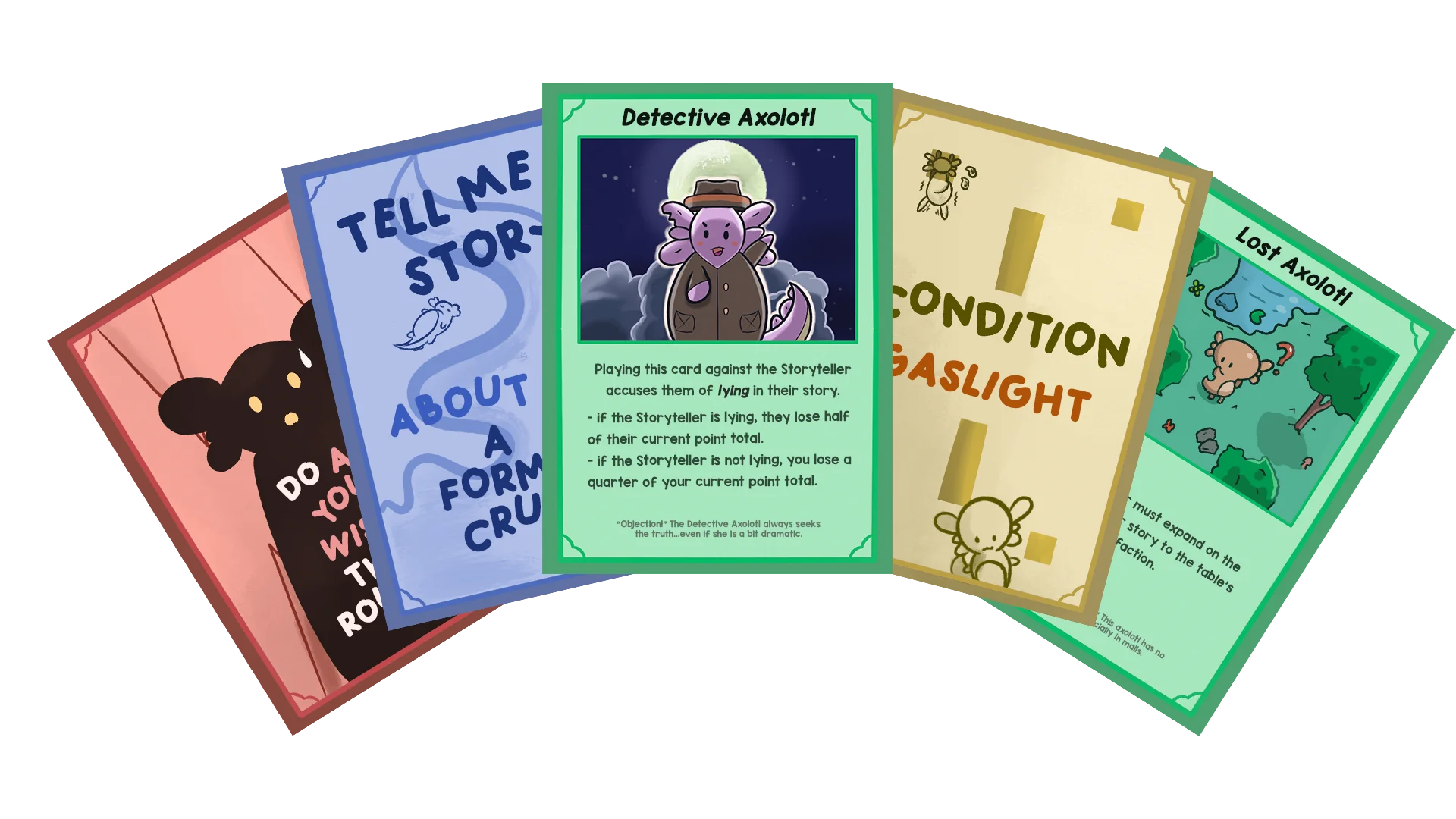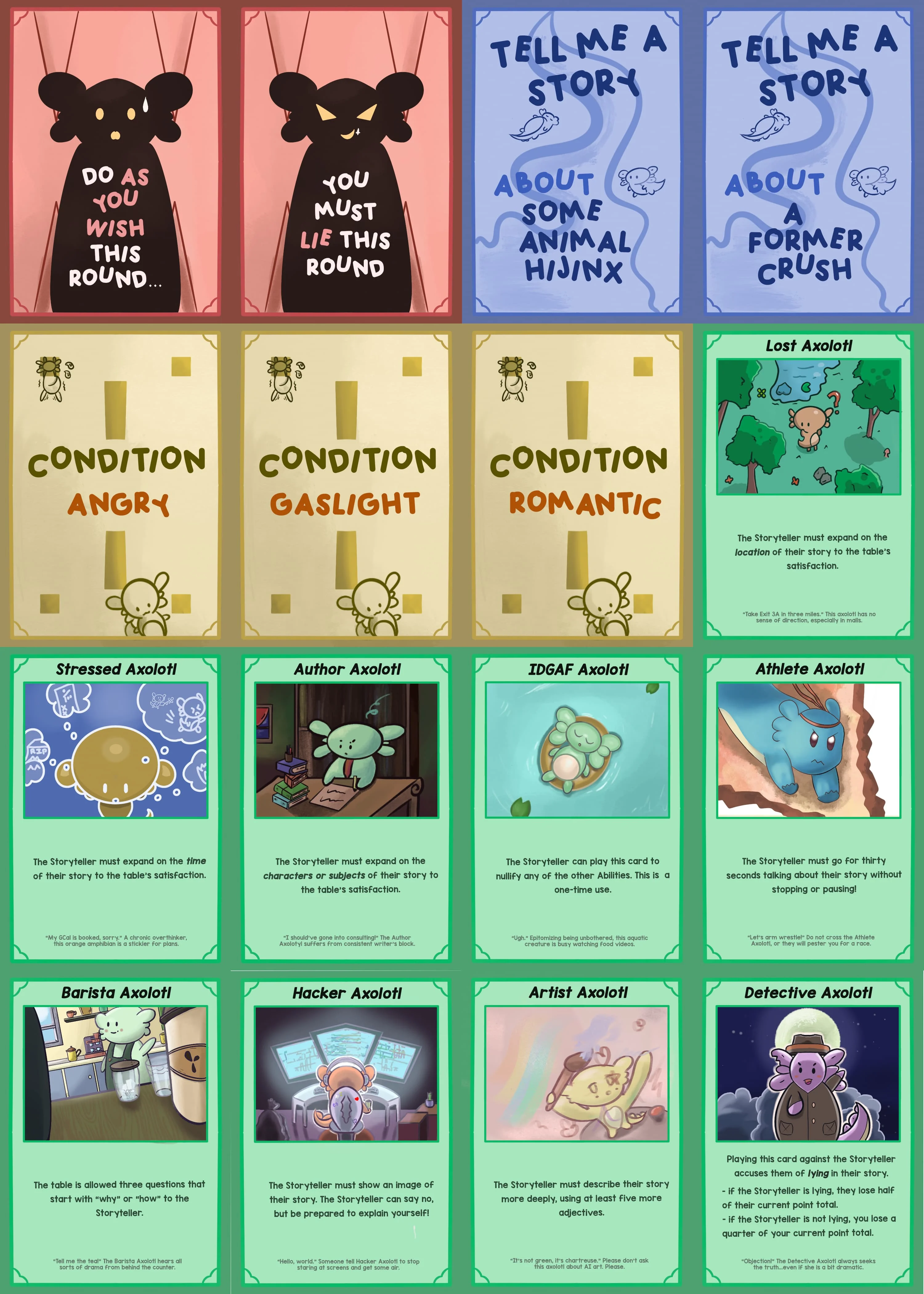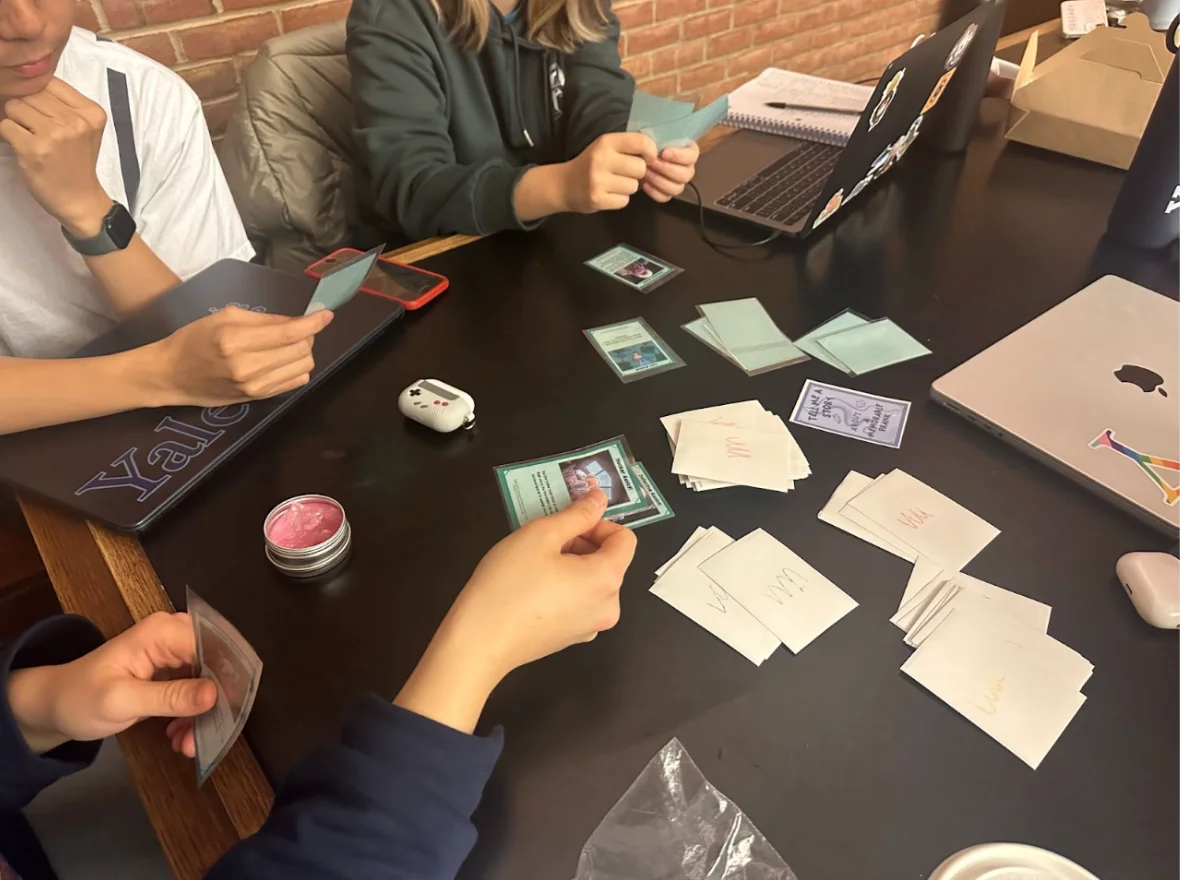Description
- Genre:Party Card Game
- Made On:Procreate, Photoshop
- Role:Solo Developer
- Made for the class ART007, "Art of the Game" in 2024
- 4-8 Players


The original pitch for the game was: Pokémon meets Cards Against Humanity meets Quiplash meets BS...
Beyond that somewhat exaggerated original concept, the game is all about being a good storyteller. The group goes around telling stories based on the cards they get (eg. a story about pets, a 'girlboss' story). You get points based on whether people like your story, whether it's the way you told it, or the content of the drama.
The catch is: you can lie in your stories. In fact, if you lie and get away with it, you get extra points. It becomes the responsibiity of the others to discern what is truth and what is false. Players can use their Ability cards to force the Storyteller to expand on their story. For example, playing the "Lost Axolotl" card forces the Storyteller to expand on the location.
I drew all of the cards in Procreate on my iPad and used Photoshop to add the text. I decided to draw the cards in a cute and playful style because I wanted to add a personal touch to the game and also give personality to each of the abilities. The art is meant to pull players in and get them more engaged with the game as it relies heavily on how excited the players are.
I chose to use axolotls as my theme, as they were cute, viral animals that would go well with the somewhat absurd and funny nature of the game. I wanted to make sure each axolotl was full of personality in their poses and colors, and I added flavor text at the bottom of each card to add another layer of engagement.
I was able to playtest this game four times with full groups, and the main edits I made were to the details rather than the overall structure.
On subsequent playthroughs, I worked on looking at how points are awarded, checks and balances for players that try to cheat the rules, and also how people should generate stories (prep time, how prompts/conditions are handled.) These were quite difficult to adjust, as I often got different feedback about how to balance the game depending on how the table was playing it. For example, one playtest saw the players struggling to come up with stories, and they requested more preparation time. But another playtest had players wanting less time to imagine stories, as they wanted a quicker, more fluid game.
I also found that this game does rely a lot on the engagement of the table since it is a game that tests how exciting your stories are. When players were not as keen on telling stories, the game felt a lot less exciting. .
